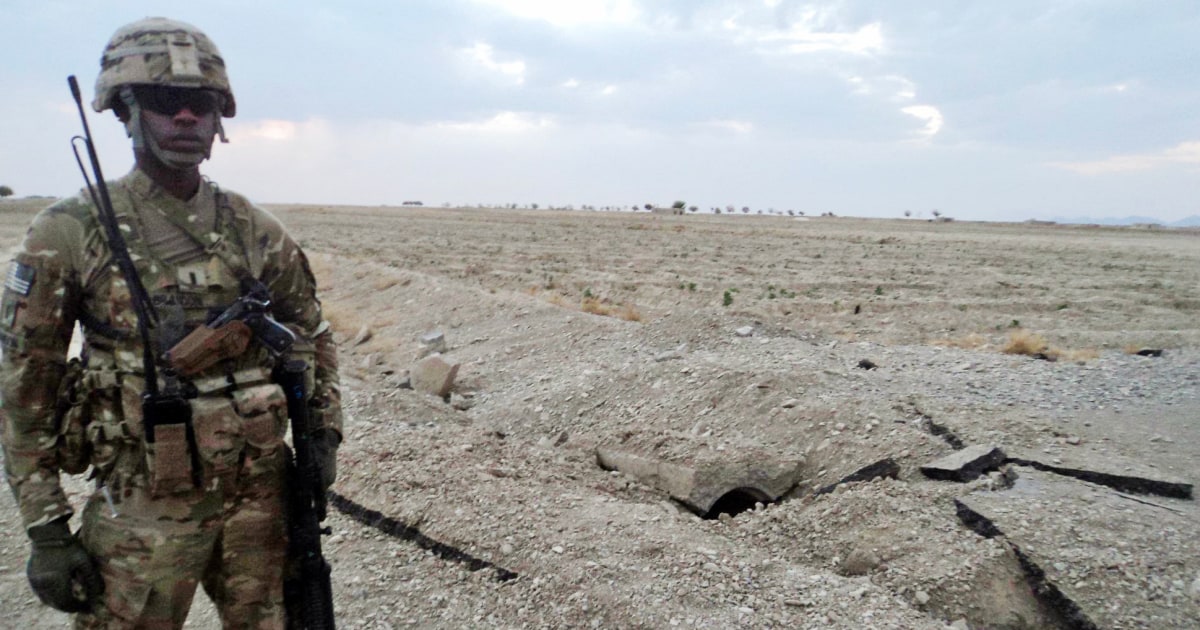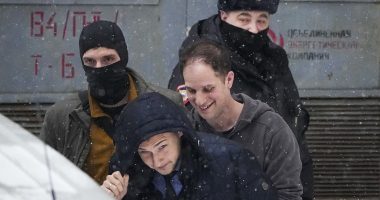
The way Army Maj. Sean Brandon sees it, the Black service members who came before him were integral to his experience of being in the military.
And that includes members of his family.
“My father was in the Air Force and my aunt joined the Army — she directly influenced me to join as well,” he said in a phone interview. “And my brother is also in the Army now.” Brandon describes his family’s involvement in the military as creating a lineage that mirrors many Black Americans’ service throughout the country’s history.
Brandon’s father and aunt joined the military to leave their hometowns in Virginia, reeling from the loss of jobs in the tobacco industry and manufacturing.
“They weren’t even lower middle class,” he said about his father’s family. “They lived in poverty with government assistance.”
The Brandon family reflects a historic trend across the U.S., in which Black families have been able to gain some economic footing through military service. According to the Institute for Family Studies, a conservative think tank, Black families have gained upward mobility through military service, similar to other institutions like higher education. Black men who served in the military were more likely to reach the middle class by the time they reached midlife than those that did not serve, according to a 2018 report.
And yet, while Sean Brandon, 35, who served in the war in Afghanistan and is still active, said that his overall experience in the military has been inclusive, he can’t forget the historic racism that Black soldiers endured to ascend socially and economically, especially before President Harry Truman ordered that the military be desegregated in 1948.
“When I look at how Blacks were treated back then, despite being at the very bottom rung of society, not even being considered a person, and then still deciding to serve the cause of a nation, I see that for them it was a way of ensuring that they became not just free but citizens,” he said.
And he sees the military as being a catalyst for helping Black soldiers then connect with those following in their footsteps today.
“They saw service in the military as an opportunity to show others that didn’t understand them that they are just like them, that ultimately they are willing to fight and die along your side, and they want to be accepted,” he said. “Unfortunately that didn’t happen for quite some time. And because of their sacrifices, we’re better off as a nation now.”
Remembering the Black veterans who came before them
Military historian David Silbey said that Black people who served, particularly before the military’s racial integration in the late 1940s, were subjected to systemic discrimination and segregation, and their efforts were generally diminished or went unrecognized until generations later.
In one example, Silbey points to the Harlem Hellfighters of World War I. The infantry regiment that mostly served alongside the French, in part because many white American soldiers “refused to perform combat duty with Black soldiers.”
These Black veterans were initially assigned to manual labor, loading and unloading supplies and building roads and railroads. But on Nov. 20, 1918, they were the first Allied unit to reach the banks of the Rhine River in Germany under the French army of occupation.
In August, over a century after the war ended, the regiment was awarded the Congressional Gold Medal.
Still, Silbey says, and Brandon agrees, the military opened an avenue to Black soldiers for upward mobility after the Civil War, even if they were often pitted against other communities, including Native Americans and Filipinos who also had their own experiences with racial discrimination.
“For Blacks in the 19th century, there’s a terrible contradiction: This was a way to make a better life for themselves. But they were supporting a white supremacist system,” Silbey said.
Eventually, Silbey pointed out, the military ended racial segregation within its ranks, which was a pivotal event in the burgeoning civil rights movement in the U.S.
“Truman doesn’t desegregate the U.S. military in 1947 and 1948 because he’s a lovely guy and it’s the right thing to do,” Silbey said of President Harry Truman. “He’s doing it under pressure from civil rights organizations,” including the labor leader A. Philip Randolph, “who are pushing to get recognition for what Black soldiers had done during WWII and break down the barriers that they are experiencing back at home.”
The beginnings of a Black military family
Decades after segregation ended in the military, Herbert Brandon, Sean’s father, enlisted in the Air Force. At 17, he needed his mother’s signature to join.
The elder Brandon, who retired as a master sergeant in the Air Force after serving from 1982 to 2002, said that while his mother couldn’t afford to pay for a college education, joining the military provided him with a career path. And he values this even more now when he compares the last 19 years as a police officer with his military service.
“In the military, it was simple. If you study and you pass the test and you have good performance eval, you’re going to get promoted,” he said in a phone interview. “But here, in the civilian sector, there’s a lot of politics and a lot of the process is subjective, so that’s why you don’t have that equal representation across the board when you’re talking about leadership.”
Herbert Brandon said that while he has seen some changes over the years, the military enforced diversity faster than most civilian institutions.
“My mother is 82 years old, and she can tell you when she was a little girl that she remembers when she had to sit at the back of the bus,” he said. “She remembers when she went downtown they had the white and Black water fountain. So if you think about it, that’s only one generation.”
Throughout his dad’s Army career, Sean Brandon grew up as an Air Force brat, moving around frequently. During his childhood and adolescence, he said he learned to adapt, often being one of the few Black students in the classroom or players on the field.
“I grew up being the one or two on-hand Black guys around,” he said. “And that helped me learn with different people.”
Sean Brandon ultimately joined the ROTC at Norfolk State University in Virginia. He said his experience as a student at the historically Black university made him appreciate the diversity within Black culture even more.
The Brandons say their experiences in the military were diverse and inclusive. But for Herbert’s sister Portia Brandon-McCraw, who served in the Army from 1985 to 2006 and retired as a lieutenant colonel, gaining visibility as a woman was more of an issue than her race.
“Overall, I think I had more issues internally with my peers — mostly with gender-based issues where men were preferred to do everything,” she said in a phone interview.
Brandon-McCraw acknowledged that things have changed. “Back in the 1980s, there were certain things you had to fight for, put your name in there, to become visible,” she said. But now, “I think the military is more accepting of women and integrated.”
She attributes part of that visibility now to the Black veterans who served before her.
“I feel that Black soldiers before me opened up doors for me to go through. They knocked down some walls so that I could stand tall. Their fight made it better for me not to have to fight as much,” she said. “We still experience some discrimination but not as much as what they had to face.”
Her nephew Sean sees things similarly.
“They paved the way for people like me,” he said. “And now, fast forward, as you go further down the timeline, it went from gaining acceptance and citizenship to providing a better way of life. And that’s where my father and my aunt come in. The military became a way to gain the American Dream.”
Follow NBCBLK on Facebook, Twitter and Instagram.
Source: | This article originally belongs to Nbcnews.com









